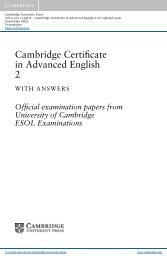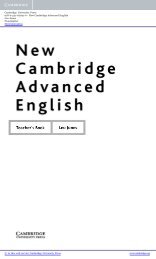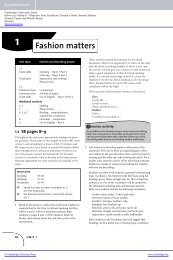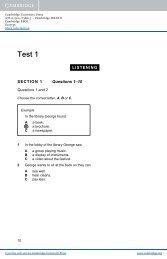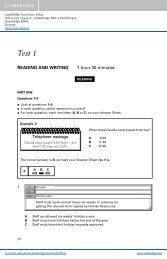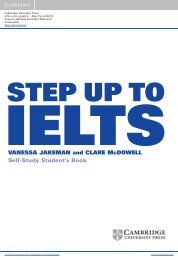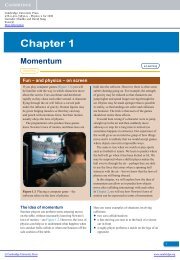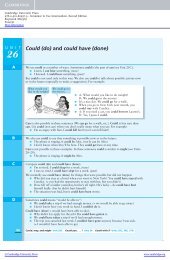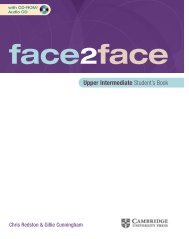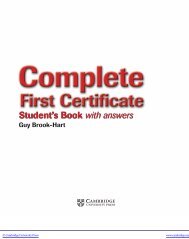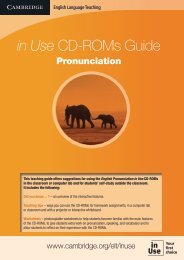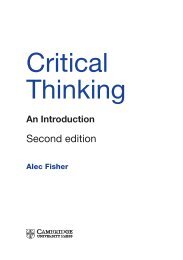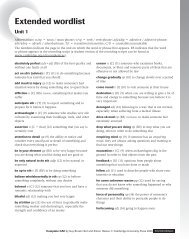Skills for Study Level 2 Teacher's Book - Cambridge University Press
Skills for Study Level 2 Teacher's Book - Cambridge University Press
Skills for Study Level 2 Teacher's Book - Cambridge University Press
You also want an ePaper? Increase the reach of your titles
YUMPU automatically turns print PDFs into web optimized ePapers that Google loves.
Suggested answers1a Too broad: terms not defined; focus not defined; topic can be divided into awhole range of other sub-topics.b Probably OK.2a Probably OK.b Too broad: no definition of locality to be studied; no definition of how‘improvement’ is judged, or which criteria will be investigated; can be dividedinto a number of other sub-topics such as water quality, water volume, etc.3a Probably a bit too narrow: it would be difficult to say that any findings in thisstudy were valid in other locations; it focuses on only one weather state, ratherthan the change in the weather variable, so no comparison to other weatherstates is possible with this data.b Probably OK, as it is looking at a general relationship.4a Probably OK.b Possibly OK <strong>for</strong> a general report, though of course it is very broad and couldeasily be divided into a number of other topics. It would probably be difficult todo this question justice at the level expected in higher education.4 Writing research proposalsNote: This is a general introduction to some of the key features of written researchproposals. It is not an exhaustive guide to proposals.4aSuggested answersSectionIntroductionResearch questionsLiterature reviewMethodExpected results and outcomesTimelineBibliography / List of referencesPossible features to includeb, g, h, i, oea, d, g, m, of, j, l, mc, nkN/AUnit 2 Part C ∙ Investigating 53



